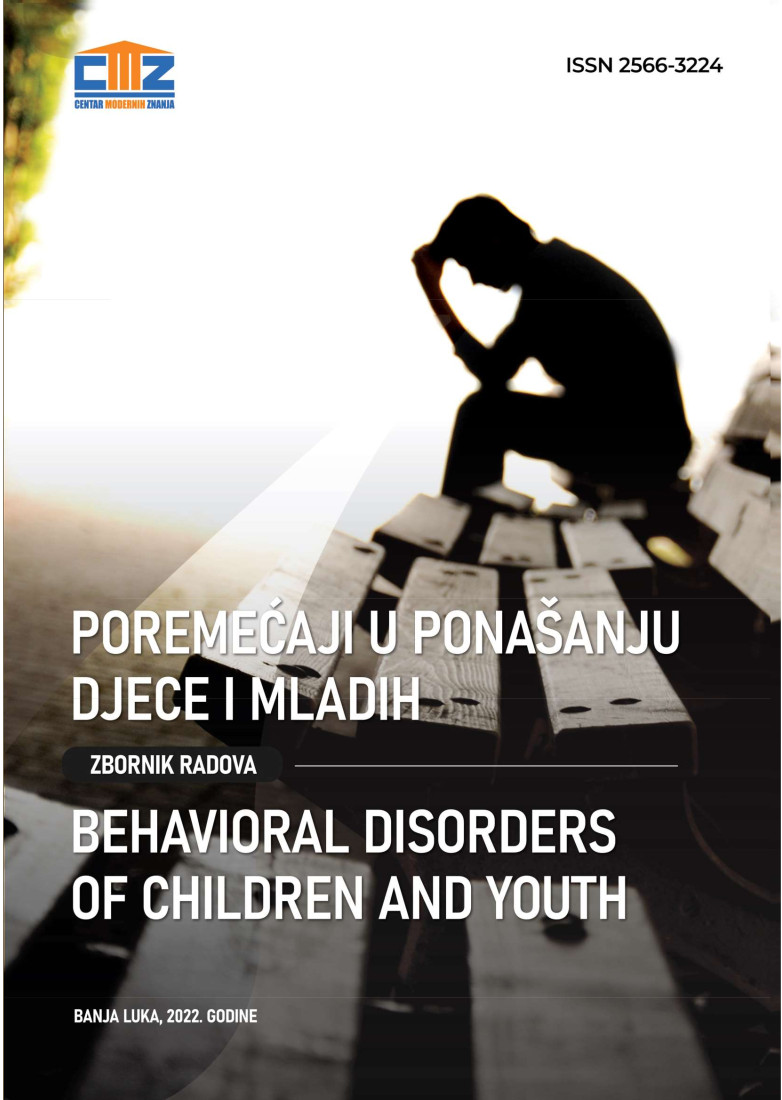DRUŠTVENA REAKCIJA NA KRIMINALITET MLADIH U CRNOJ GORI
SOCIAL REACTION TO YOUTH CRIMINALITY IN MONTENEGRO
Author(s): Valentina SmolovićSubject(s): Criminal Law, Criminology, Social Norms / Social Control
Published by: CENTAR MODERNIH ZNANJA
Keywords: youth crime; juvenile; criminal offense;
Summary/Abstract: Youth crime, that is, socially unacceptable behavior of young people as a special sociological criminological category, has always attracted the attention of researchers. Thanks to them, many theories were developed that considered juvenile crime, that is, juvenile delinquency from the perspective of various scientific disciplines. In this regard, there were also changes in the way of reacting to socially unacceptable behavior of young people. In previous stages of society's development, a strict social and legal response to youth crime prevailed. Modern times bring gradual changes in the system of socio-legal activities related to socially unacceptable behavior of young people, from extremely strict reaction to more humane treatment of minors. The long tradition of customary law was characteristic of the Montenegrin state. The first data on the courts, which judged juveniles individually, date back to the beginning of the 17th century. In the Criminal Code for the Principality of Montenegro from 1906, for the first time in Montenegro, the issue of minors and their criminal liability is regulated in detail. After the creation of the SHS Kingdom, until 1977, there was no special law regulating juvenile legislation, that is, the criminal-legal position of minors. In the previous period, the professional and scientific public did not sufficiently deal with youth crime in Montenegro. Very few articles and researches in this area speak in favor of the fact that we did not care too much about this area in the previous period. With the adoption of the Law on treatment of minors in criminal proceedings in 2011, a new period in juvenile justice in Montenegro begins. Professional services are established at the High Courts in Podgorica and Bijelo Polje, as well as in the Supreme State Prosecutor's Office, judges undergo special training for working with minors, minors, victims and witnesses of criminal offenses are heard by experts from the Professional Services in special rooms. the treatment of a minor as a perpetrator of a criminal act, a child and a minor as a participant in the proceedings, which is based on respect for human rights and basic freedoms while respecting the best interests of minors, taking into account their maturity, level of development, abilities and personal characteristics, as well as weight criminal offense, and with the goal of their rehabilitation and social reintegration.
Journal: DRUŠTVENE DEVIJACIJE
- Issue Year: VII/2022
- Issue No: 7
- Page Range: 425-432
- Page Count: 8
- Language: Bosnian, Croatian, Serbian, Montenegrine

